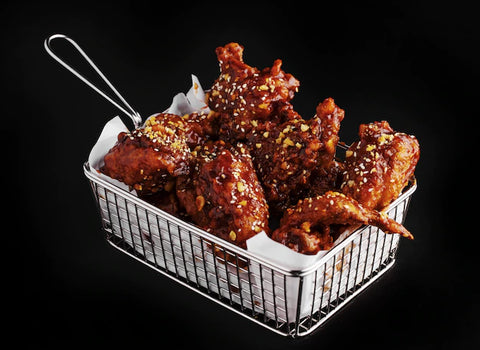Can I trademark the name of a food?
Can I Register a Trademark for a Food Name?
There is a huge variety of dishes, techniques, and ingredients in the culinary world. While cooking up their signature dishes, many aspiring chefs and restaurateurs wonder, "Can I trademark the name of a food?" It's a question that combines the culinary arts with intellectual property law. Understanding the complexity of trademark laws and the need to safeguard one's culinary innovations in a cutthroat economy are both illuminated by this inquiry.
Can I trademark the name of a food?

Trademarks: Their Very Core
In order to get to the meat of the issue, it is necessary to define what exactly a trademark is. A trademark is essentially any symbol that may be used to identify the products or services of one company as distinct from those of another. It safeguards trademarks, making sure that customers can easily recognize and choose a product or service because of its distinctive qualities and features.
The Food Industry's Trademark and Name Problem
Unlike other commodities, food has strong ties to history, custom, and location. In light of this complexity, the issue "Can I trademark the name of a food?" becomes more complex. Here's how it works out:
The foundation of every trademark is its capacity to set apart a product or service from the competition. It may be difficult to secure a trademark for a meal if the name is too descriptive or uses common words. It would be difficult, for instance, to trademark the name "Spaghetti" for a pasta meal. A novel title, like "Pasta Presto Delight," has a greater chance of being remembered.
Some foods have deep roots in a certain area and have special geographical indications. One example is Champagne, which is unique among sparkling wines since it comes exclusively from the Champagne area of France. Names that have special meaning because of their location are afforded additional legal protections, even though they cannot be trademarked in the usual sense.
Can I trademark the name of a food?

Names that are purely descriptive, like "Crunchy Caramel Cookies," may be more difficult to copyright than names that are more creative or random. The trademark value of a name increases in proportion to how distinctive it is and how little it resembles the product itself.
The Value of Food Brand Trademarks
One step is realizing how crucial it is to protect your brand by trademarking your food names, and another is actually doing it. Consider the following advantages of taking this step:
Brand Recognition: A Trademarked Name Stands Out in a Sea of Competitors. It ensures reliability and high quality for the clientele.
Safeguards Against Knockoffs: Fads and fashions in the food industry frequently lead to a flood of similarly named items flooding the market. Having a trademark in place protects the originality of your work.
Value in the marketplace: a trademarked name might fetch a higher price. If you ever want to sell your company or franchise it, this may be a huge selling point.
A trademark provides legal protection in the event that a competitor uses a name that is confusingly similar to your own. It's a defense mechanism in case of any violations.
How to Make It in the Trademark World
Here are some things to think about if you're wondering, "Can I trademark the name of a food?" and decide to go forward with the process:
Before applying for a trademark, you should conduct extensive research to make sure that the name you want to use hasn't previously been used. National trademark office databases and others like them can be quite helpful in this investigation, Can I trademark the name of a food?
Trademarks are complex, therefore it's best to consult an expert. Professional assistance, especially from individuals familiar with trademarks in the food business, can help speed things along.
Think Globally: Researching trademark laws in the countries where you hope to sell your product is a crucial first step. What succeeds in one nation may not always transfer to another.
Trademarks are not one-time purchases and require regular renewals. They require frequent renewals, therefore it's important to keep tabs on approaching deadlines.
Final Thoughts
Flavor and experience are equally important in the culinary industry as name recognition. As chefs and business owners create their masterpieces, it is more important than ever to keep them safe. Is it possible to trademark a dish's moniker? is crucial to a company's long-term viability, and not only a legal question. Trademarks are the backbone of the culinary industry, ensuring that each individual innovation, dish, and brand is recognized and protected in the great scheme of things.

